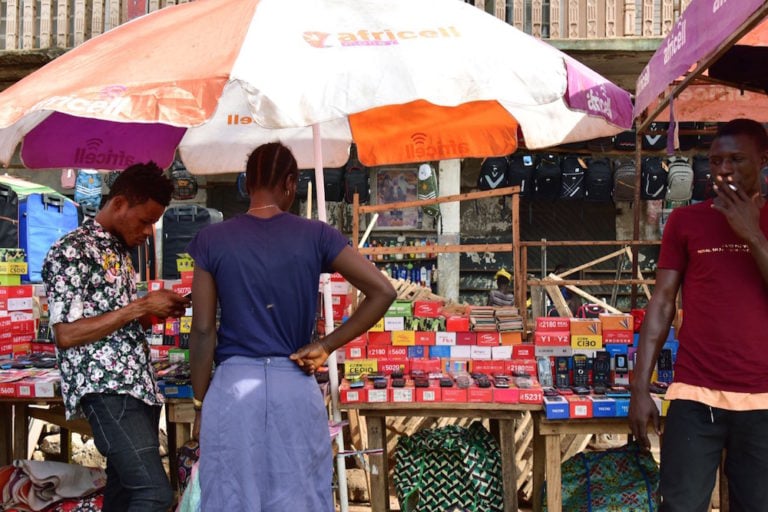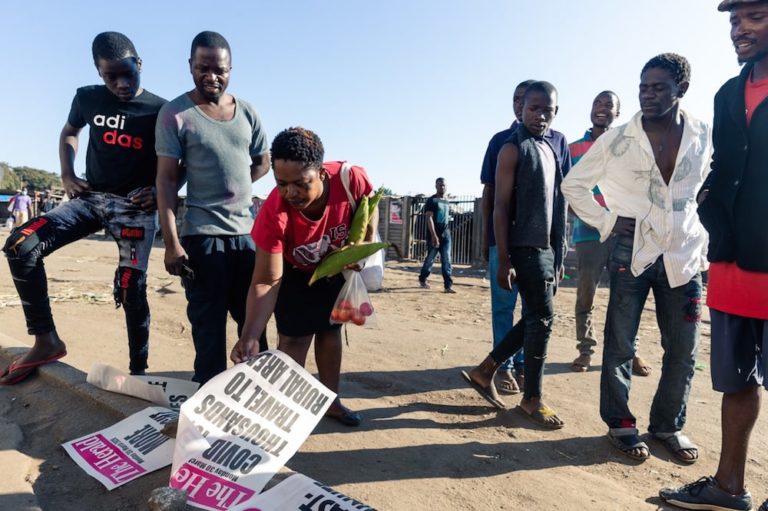(MISA/IFEX) – A reporter and a camera operator from the South African Broadcasting Corporation (SABC) were released on 19 November 1998 following a brief detention at Katima Mulilo in northern Namibia. Montlenyane Diphoko and Thabo Modise were arrested on 18 November by Namibian Immigration authorities shortly after entering the country via Botswana. The two were […]
(MISA/IFEX) – A reporter and a camera operator from the South African
Broadcasting Corporation (SABC) were released on 19 November 1998 following
a brief detention at Katima Mulilo in northern Namibia.
Montlenyane Diphoko and Thabo Modise were arrested on 18 November by
Namibian Immigration authorities shortly after entering the country via
Botswana. The two were investigating reports of tensions in the region. They
were arrested after they apparently began interviewing villagers on the
current situation. They spent the night in jail and were released shortly
after lunch on 19 November.
A high ranking police official quoted in the “Namibian” newspaper said that
Diphoko and Modise had been arrested for “doing a job in Namibia without a
work permit or any media accreditation.” However, the two were granted
temporary work permits on their release and following negotiations involving
the Namibian Home Affairs authorities, the SABC and the South African High
Commissioner to Namibia. One of the SABC television news editors contacted
by MISA, Gary Alfonso, confirmed that the two journalists had been allowed
to continue with their work following their release.
Meanwhile, on 6 November, a television crew working for the Namibian
Broadcasting Corporation (NBC), were reportedly harassed by Namibian
soldiers at Bivundu, also in northern Namibia. The crew of four was made up
of journalists Eve Black and John Thebuho and camera operators Festus
Mbandeka and Sylvester Simubali.
Black told MISA that they were initially confronted by soldiers when they
tried to take footage of a bridge in the region. They were prevented from
filming and decided to return to the village of Bivundu. While in the
village they were again confronted by a group of soldiers who wanted to
confiscate their tapes. Following a tense standoff, which involved the
soldiers training their guns on them, they managed to leave without having
their tapes confiscated.
Background Information
Events in the Caprivi in northern Namibia turned tense a few months ago
following reports of an alleged secessionist attempt in the region. Recently
there have also been reports of a mutiny among soldiers based in the region,
while several hundred people have apparently fled the region into
neighbouring Botswana citing fears of harassment and persecution at the
hands of the Namibian army.
In October last year, the Namibian government announced various restrictions
on foreign journalists wishing to visit the country. The Ministry of
Information and Broadcasting said at the time that the government was
experiencing problems with the unexpected and unannounced arrival of foreign
journalists in Namibia.
The restrictions involve visiting journalists first having to report to the
Ministry of Home Affairs to have their passports endorsed with a temporary
work permit. Once this is done, the journalists are required to report to
the Ministry of Information for accreditation. The new rules went contrary
to an assurance given to MISA in 1993 that media workers would only have to
report at the border with proof that they were bona fide journalists and
would be allowed entry with minimum delay. They could then proceed to report
to the Ministry of Information for registration.


